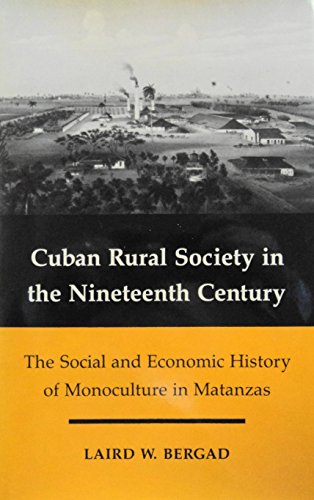Among the factors inhibiting development of diversified economic structures in many Caribbean and Latin American countries, the persistence of monoculture plays a crucial role. Examining Cuba as a case study, Laird Bergad uses extensive data from Cuban archival sources to analyze the social and economic structures of a country shaped by monocultural sugar production since the mid-eighteenth century. He focuses on Matanzas, the center of the Cuban slave-based sugar economy, and shows how dependence on this one product generated great wealth but ultimately produced an unstable society in which most people remained poor and illiterate. A provocative account of nineteenth-century Cuban rural society emerges from the collective portrait of the social sectors that forged the history of Matanzas's sugar production. Bergad depicts the interaction among planters, merchants, slave traders, slaves, and free blacks while showing how sugar monoculture adapted to social and economic changes. He presents a detailed study of the economics of slave labor and new data that challenges prior interpretations of Cuban slavery.
- ISBN10 0691078165
- ISBN13 9780691078168
- Publish Date 29 April 1990
- Publish Status Out of Print
- Out of Print 11 July 1996
- Publish Country US
- Imprint Princeton University Press
- Format Hardcover
- Pages 456
- Language English
- URL https://press.princeton.edu/titles/4545.html
